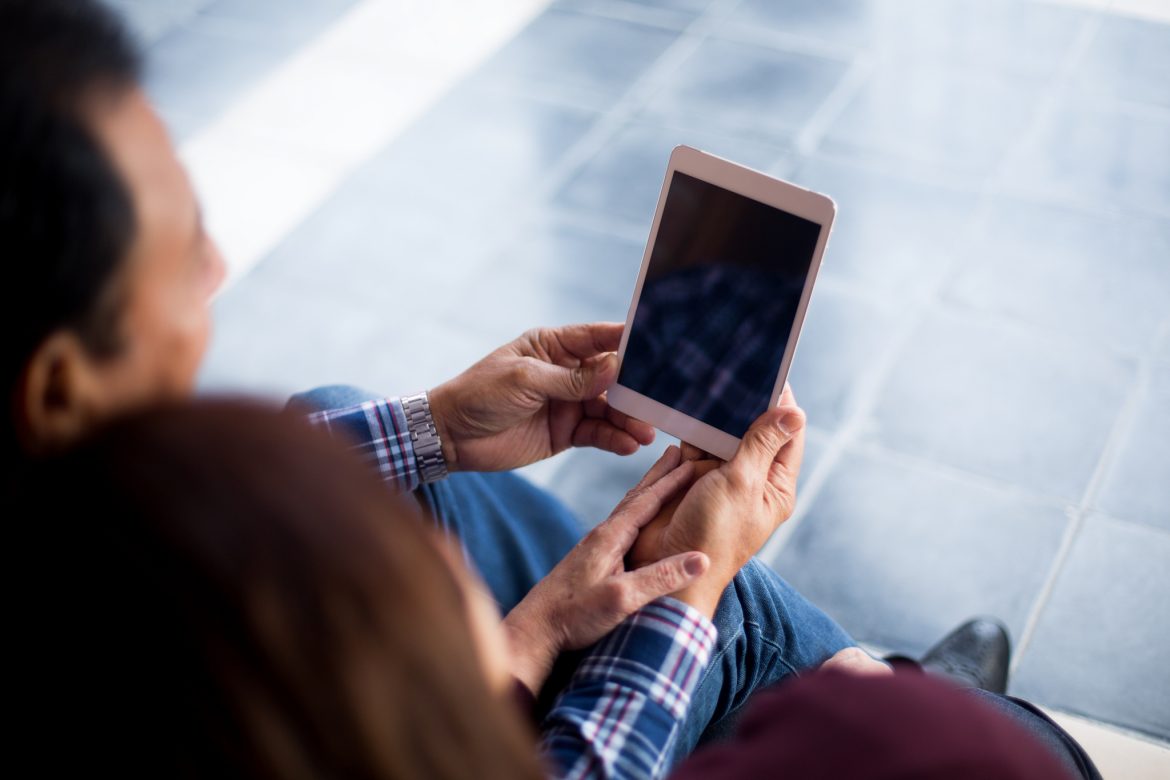Weather Updates and Family Communication Plan During Storms

Severe storms and the potential flooding that accompany them can easily disrupt communication channels. In such a chaotic situation, your mobile phones and tablets will be essential for keeping in touch with family and receiving important weather updates. Here are a few things you can do ahead of the storm to have a family communication plan and stay informed.
Staying informed of emergency weather updates
Download emergency service apps.
Emergency service apps give you access to important resources. The SC Emergency Manager and ReadyNC apps are excellent sources of information including real-time weather information. The FEMA mobile app allows you to get real-time alerts for up to five locations nationwide, locate emergency shelters, and connect with FEMA to register for disaster assistance online. It’s also free for Apple and Android devices.
Update your existing apps.
Check emergency, weather, and flood alert apps to make sure they're up-to-date and functioning. Check them again when you receive news that a storm may be approaching.
Keep your devices charged.
Ensure all devices and backup chargers plugged in as long as you have power. If you’re preparing to evacuate, ensure your devices are 100% charged before you leave. When you’re on the road, use mobile chargers in the care and only use your cell phone only for emergency calls or updates. Get more tips on prepping your mobile devices here.
Locate or purchase a spare battery and cell phone charger for your car
If power is out for an extended period, your vehicle could be a valuable source of energy for your mobile devices. It’s a great way to stay connected whether you need to evacuate or not.
Find alternate ways to receive emergency notifications.
If you want to save your mobile phone battery on the road, use your car radio. You can find your local station that’s broadcasting weather alerts and preset it on your vehicle ahead of time. Here’s a search tool to find the best station for you.
Purchase an emergency weather radio with hand crank power.
If all other technology fails, a hand crank power radio can be an excellent last resort to stay connected during a storm. You will ensure that you’re able to receive all weather updates and news, and some new models can even charge your devices.
How to help family stay connected during flooding
Create a texting phone tree.
Organize a network of contacts so you can reach them quickly. In the aftermath of extreme weather, texting may be the only available form of communication. Every family member should also carry contact cards in the event that they need to rely on someone else’s device to get in touch.
Get a family GPS app.
Most of your family members carry a personal tracking device in the form of their smartphone. An app like Life360 can show you where they are at any given time on a map. The family GPS tracking system should help you find your loved ones, get safety alerts to them or call for help with the tap of a button. Free for iOS or Android.
Use a social network.
Create a private “family only” page on Facebook so your extended family can check on your status even if their calls won’t go through. You may still be able to access social or other apps even when call services aren’t working. It’s helpful to communicate with family nearby and to let far away family know that you’re safe.
Help family stay in touch in case of emergency.
If you have an iPhone, turn on the Find My iPhone feature under iCloud settings. Then consider giving someone else your AppleID, and they'll be able to log in and get an idea of where you are. A similar thing can be done with Android’s “Find My Device” app.
How to ensure easy access to important documents
Back up your phone and computer.
We’re used to having our data at the ready, but make sure important documents and anything you want to protect that is currently only on a hard drive is backed up to the cloud. If you have a Dropbox or OneDrive account, check to ensure that your important documents and data are stored there. If not, set one up and copy all data to that account.
Save duplicate copies of important documents to the cloud.
Create a new, separate, and private Google account just for this. Scan and upload copies of things like insurance policies, vaccine records, copies of photo identification, passports and birth certificates to Google Docs. Use a service to securely store important logins and passwords you might need quickly. Consider giving access to this account to a trusted family member in case you’re unable to access the information during a power outage.
Update your home inventory.
Technology might be the least sentimental thing in your home, but it can be an expensive loss. Be sure to update your home inventory to ensure all new items are covered. You can even use the same technology to make inventorying easier by taking photos or videos. Create a private YouTube channel or photo library to save in the cloud so you won’t have to worry about storing the data you record. More on a quick home inventory here.
The best time to set up a communication plan for an emergency is before you need one. With the threat of severe weather, make sure all family members know how to stay connected, receive flood updates, and get in touch when needed.